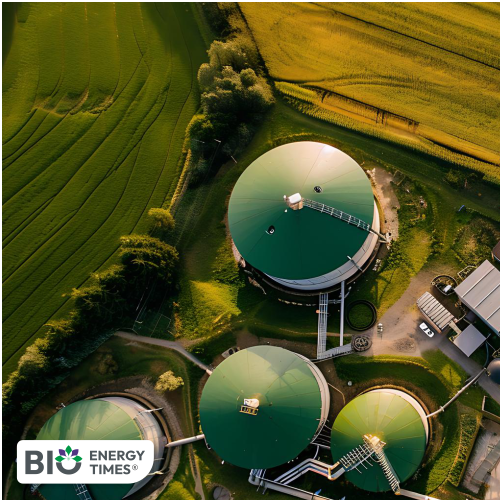A Nigerian-born engineering researcher, Mayowa Oladele, is attracting international attention for his groundbreaking work on digital-twin systems aimed at improving sludge management, biogas generation and climate-resilient wastewater infrastructure. Business Day has learnt that the University of Connecticut (UConn) doctoral candidate is emerging as one of the most promising young innovators in the optimisation of anaerobic digestion, reports Business Day.
Anaerobic digesters — sealed tanks that convert organic waste into renewable biogas — have long played a key role in wastewater treatment worldwide. Oladele’s research is redefining how these systems can be tracked and controlled.
Explaining his motivation, he said, “We are creating tools that help cities manage waste better, generate clean energy and move toward a more sustainable future.” At UConn’s Chemical and Biomolecular Engineering Department, he is developing hybrid digital twins that combine mechanistic models with advanced recurrent neural networks. He says the new modelling approach has delivered up to 90 percent improvement in crucial performance predictions, a breakthrough experts consider a significant step toward next-generation wastewater-energy optimisation.
His work has already been published in respected peer-reviewed journals, including ACS ES&T Water, and presented at major global scientific events such as the AIChE Annual Meeting and ESCAPE/PSE. “Sharing this work with the international community helps refine the science and expand its reach,” he told Business Day.
Outside his research, Oladele serves as a peer reviewer for leading environmental and engineering journals. Colleagues who follow his work describe him as a “careful and dedicated scientist” committed to improving the credibility of new wastewater technologies.
He has also contributed to the U.S. National Alliance for Water Innovation (NAWI). As a former Chair of the NAWI NextGen Leadership Council, he supported early-career researchers and worked to strengthen the talent pipeline in the water-energy sector. “Being a leader in science means helping others grow. When the community grows, innovation grows,” he noted.
In 2024, Oladele was part of UConn’s delegation to COP29, where he engaged global leaders on climate resilience, sustainable infrastructure and wastewater-energy transitions. UConn officials say his involvement reflects the university’s expanding role in shaping climate-related research and policy.
He has received several engineering fellowships and academic awards, recognising both his technical achievements and his leadership in water-innovation circles. Observers say the recognition highlights the increasing impact of young African researchers in global sustainability efforts.
Focused on practical solutions, Oladele views his work as a direct contribution to the United Nations Sustainable Development Goal 9, which promotes innovation, industry and resilient infrastructure. “As engineers, our job goes beyond improving calculations,” he said. “We are solving real challenges for real communities.”
Looking ahead, he hopes to expand the use of digital-twin technology across Africa to modernise wastewater management and increase renewable-energy production in growing cities. His long-term goal, he said, is to “equip utilities with data-based tools that support environmental sustainability and resource recovery across the continent.”














